12 Things You Should Never Do at a Dog Park
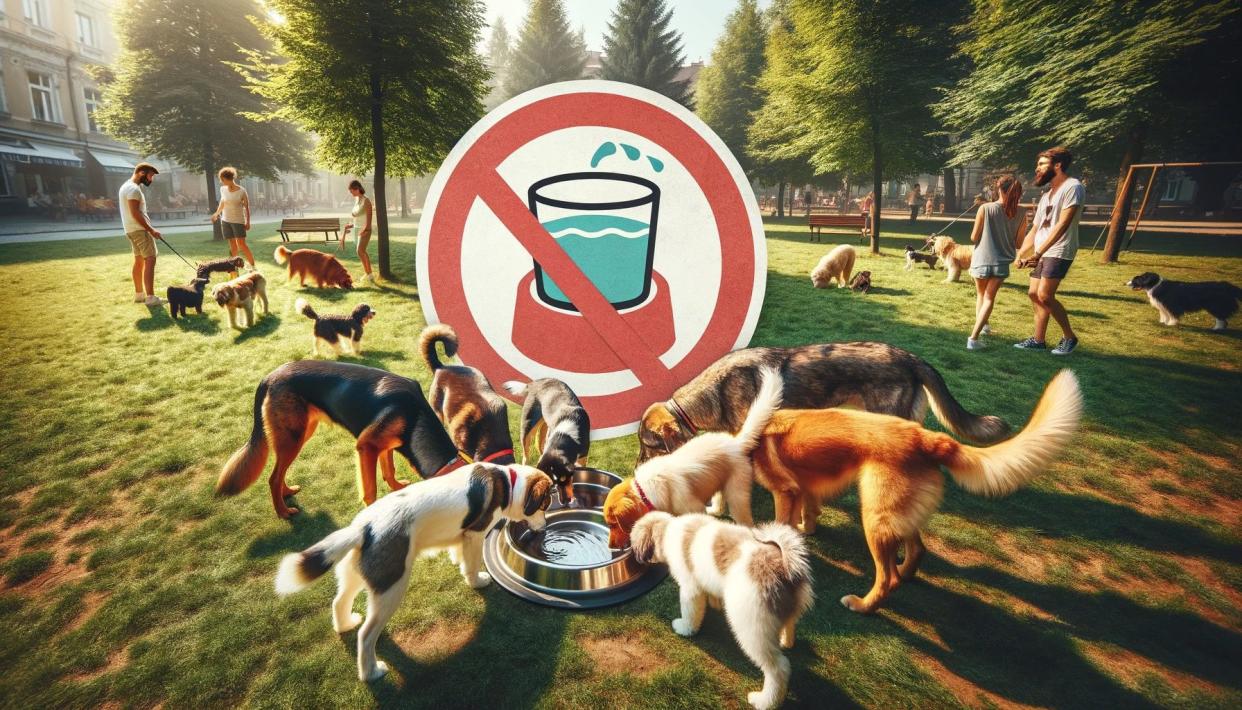
Canine Courtesy
While dog parks provide an excellent way for Fido to socialize and exercise, they can also pose challenges to well-meaning pet owners and their fur babies. These shared spaces often harbor diseases that can spread through communal water bowls or close contact with other dogs. Plus, environmental concerns like littering and improper disposal of waste can affect the hygiene and safety of the park.
From forgetting to bring waste bags to ignoring park rules, here are 12 common mistakes that pet owners make at dog parks. And don't worry — we've also included tips on how to avoid them.
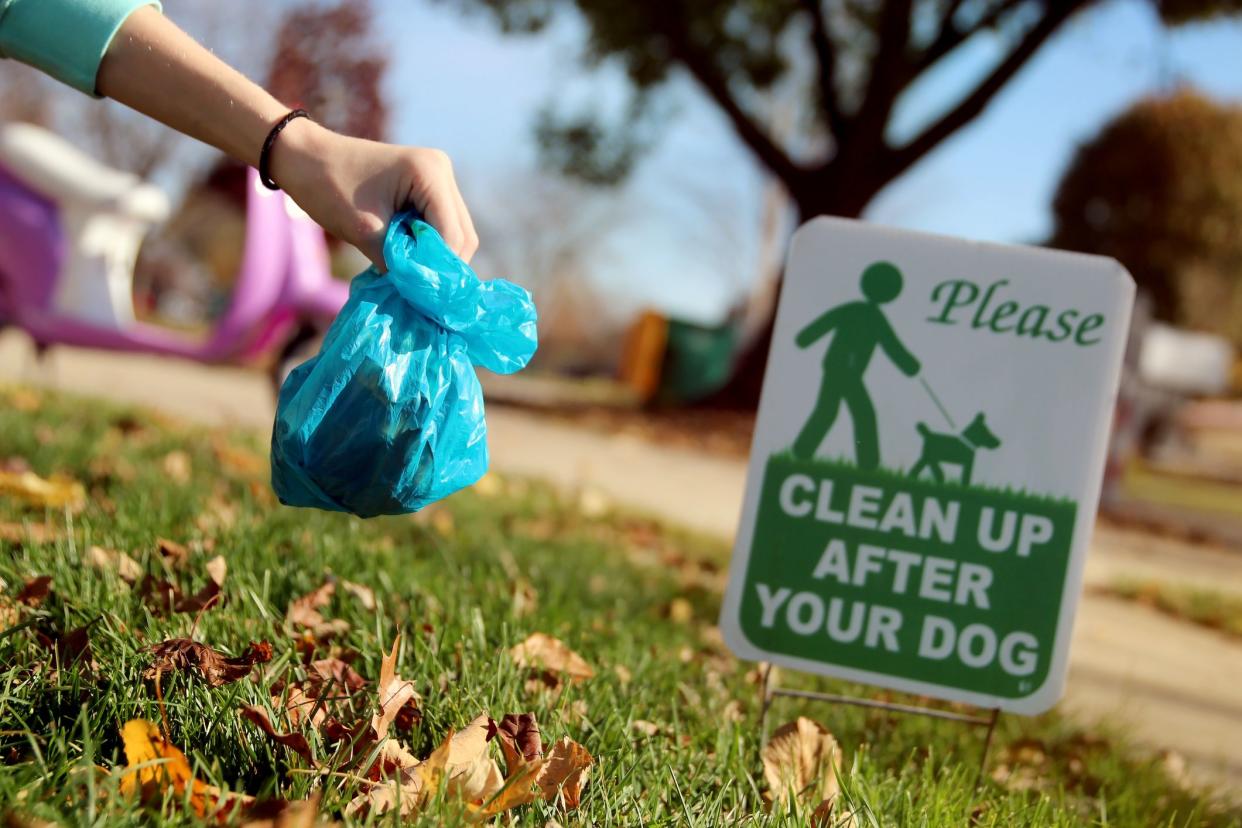
1. Forgetting Poop Bags
Forgetting to bring poop bags is a frequent oversight that can lead to unsanitary conditions in public spaces. When owners don't clean up after their pets (honestly, it's infuriating), it not only harms the environment, but also diminishes the enjoyment of the space for others. Nobody wants to visit a park covered in feces. Plus, leaving waste behind can lead to the spread of parasites and diseases.
To avoid this predicament, consider keeping extra bags in your car, attached to your dog's leash, or in your pocket to ensure you're always prepared for when your pup has to go.
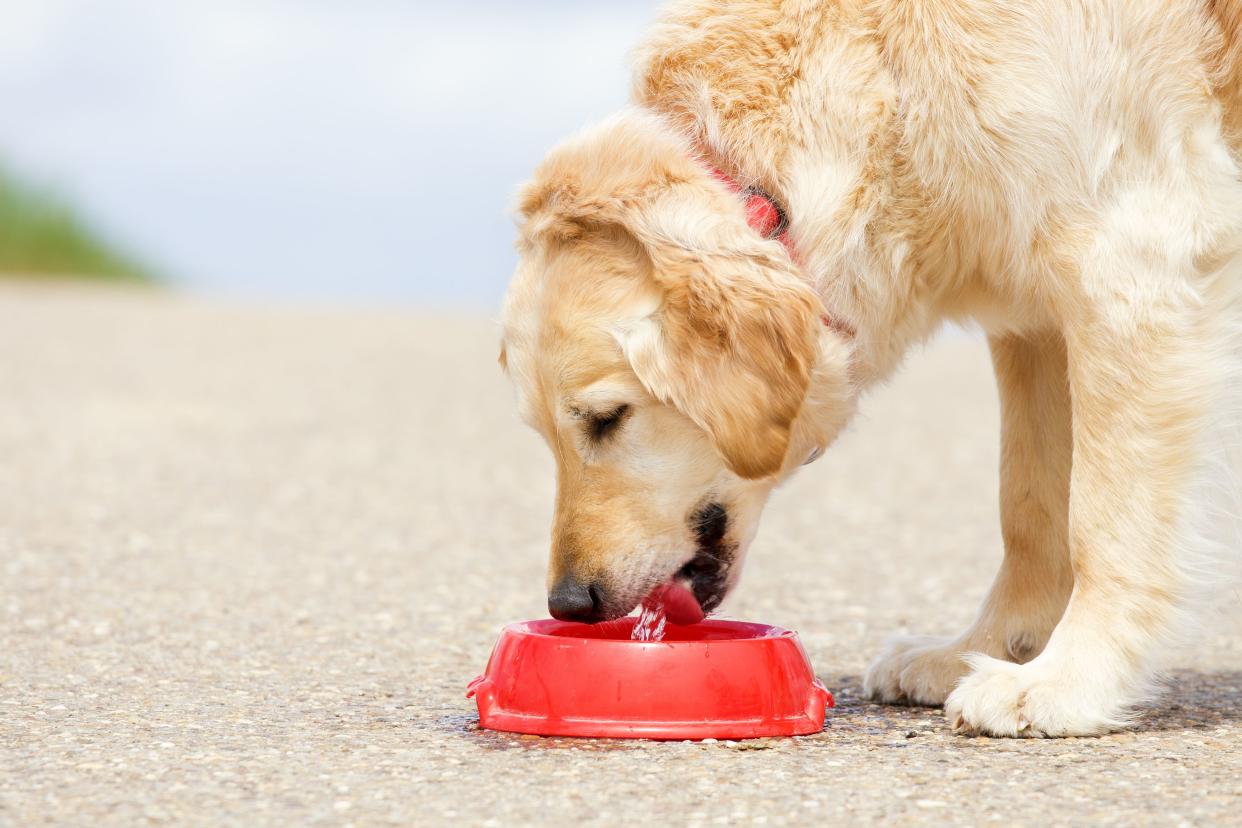
2. Allowing Dogs To Drink from Communal Bowls
Using communal water bowls can expose dogs to diseases like parvovirus, kennel cough, or canine influenza — all of which are highly contagious and can spread through close contact with infected animals. When dogs share bowls, they can also pass on parasites or bacterial infections. This risk is further increased if the water is not changed regularly and the bowl is left dirty.
To minimize this risk, remember to always bring your own water bottle and a portable bowl for your pooch, and don't share it with other dogs.
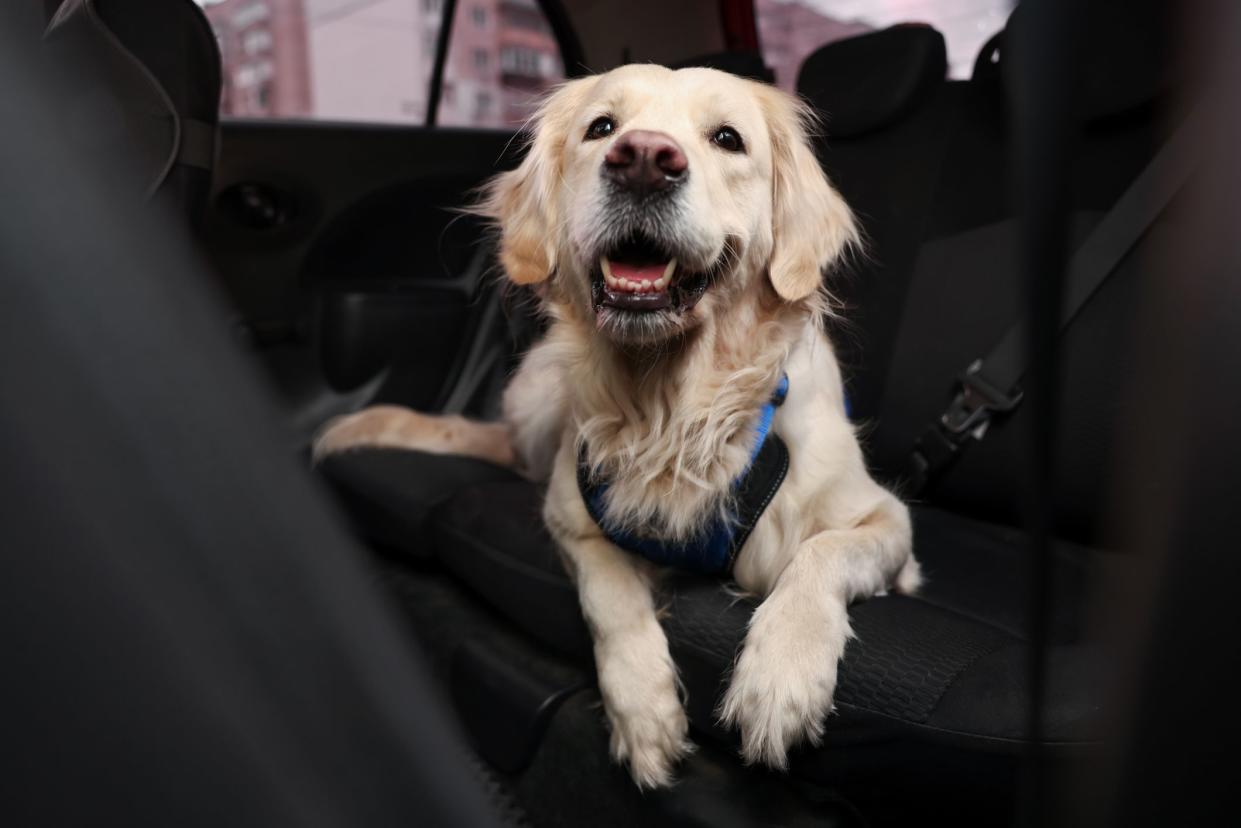
3. Not Prepping the Car
Many pet owners forget to prepare their car for a potentially muddy or wet dog after a park visit, which can lead to hefty cleaning fees from soiled upholstery and carpets. Trust me — you don't want to underestimate the lasting smells that comes from a dirty, wet dog. Plus, it's uncomfortable for Fido to sit in his own filth on the ride home, especially if you live far from the dog park.
Instead, consider investing in waterproof seat covers, towels, and cleaning supplies in the car for quick cleanups.
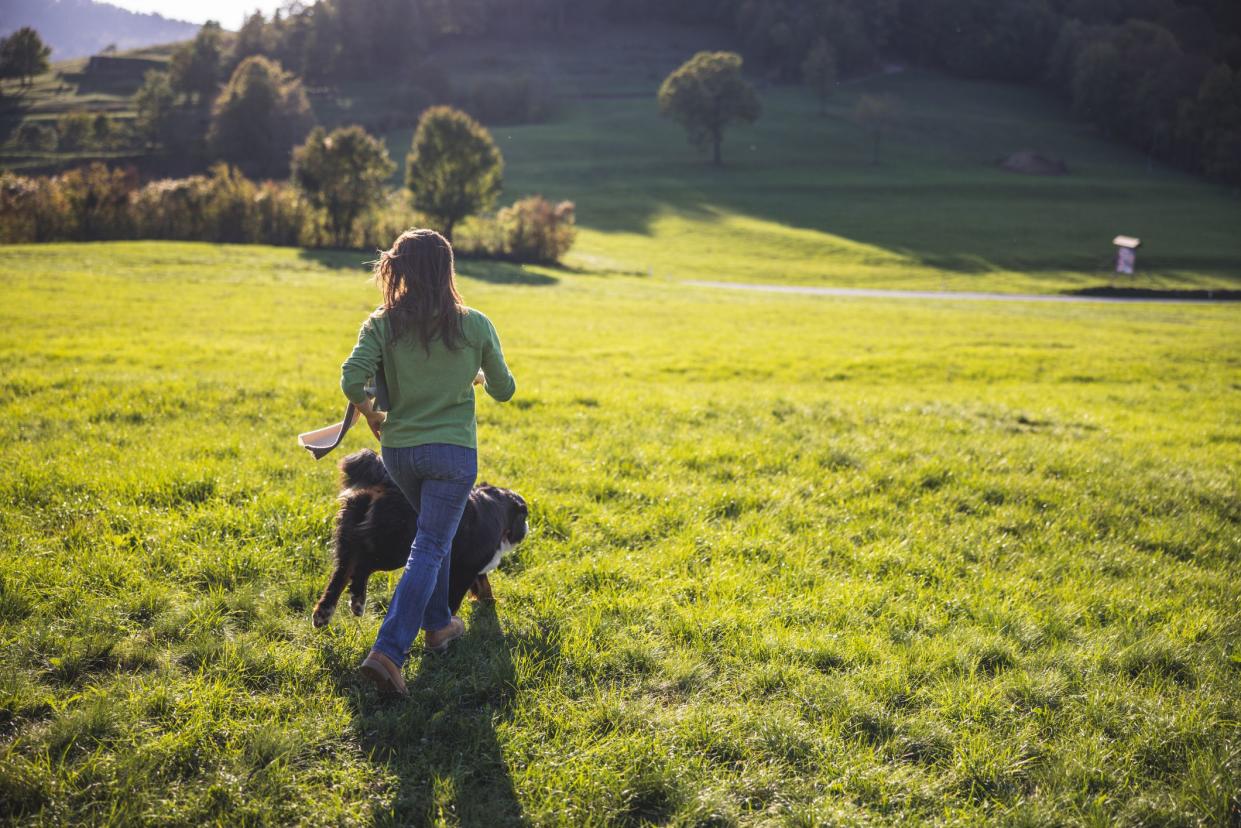
4. Not Watching Your Dog Closely
While at the dog park, it can be easy for owners to become distracted by conversations or their phones, losing sight of their dog’s activities. This lack of supervision can lead to dogs wandering off, getting into fights, or engaging in unwanted behaviors like digging or aggressive play.
In order to prevent incidents that could harm your dog or others, it's crucial to always keep your dog within view and intervene immediately if you notice any troubling signs or inappropriate behavior.
Related: 7 Things You Should Never Let Your Dog Do in Public
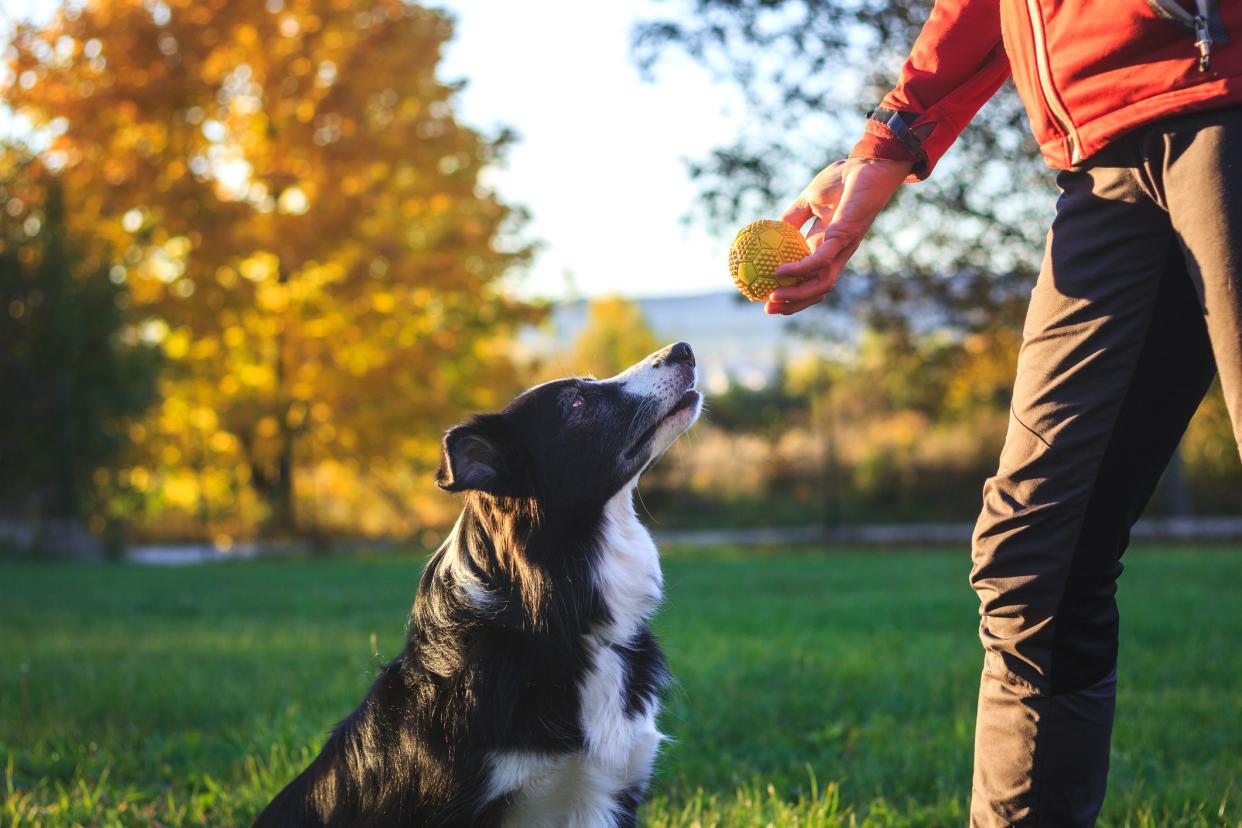
5. Failing To Train Dogs for Recall
Without reliable recall, a dog can easily get into dangerous situations or become a nuisance to other people visiting the park. A dog that doesn’t respond to calls can disrupt the park environment and may not be easy to control if a risky situation arises. Recall training is essential for the safety of your dog and others. It's also a basic requirement for any off-leash area.
To train your dog to come when called, consider practicing recall regularly under various conditions before fully trusting your pooch off-leash at the dog park.
For more helpful pet content, please sign up for our free newsletters.
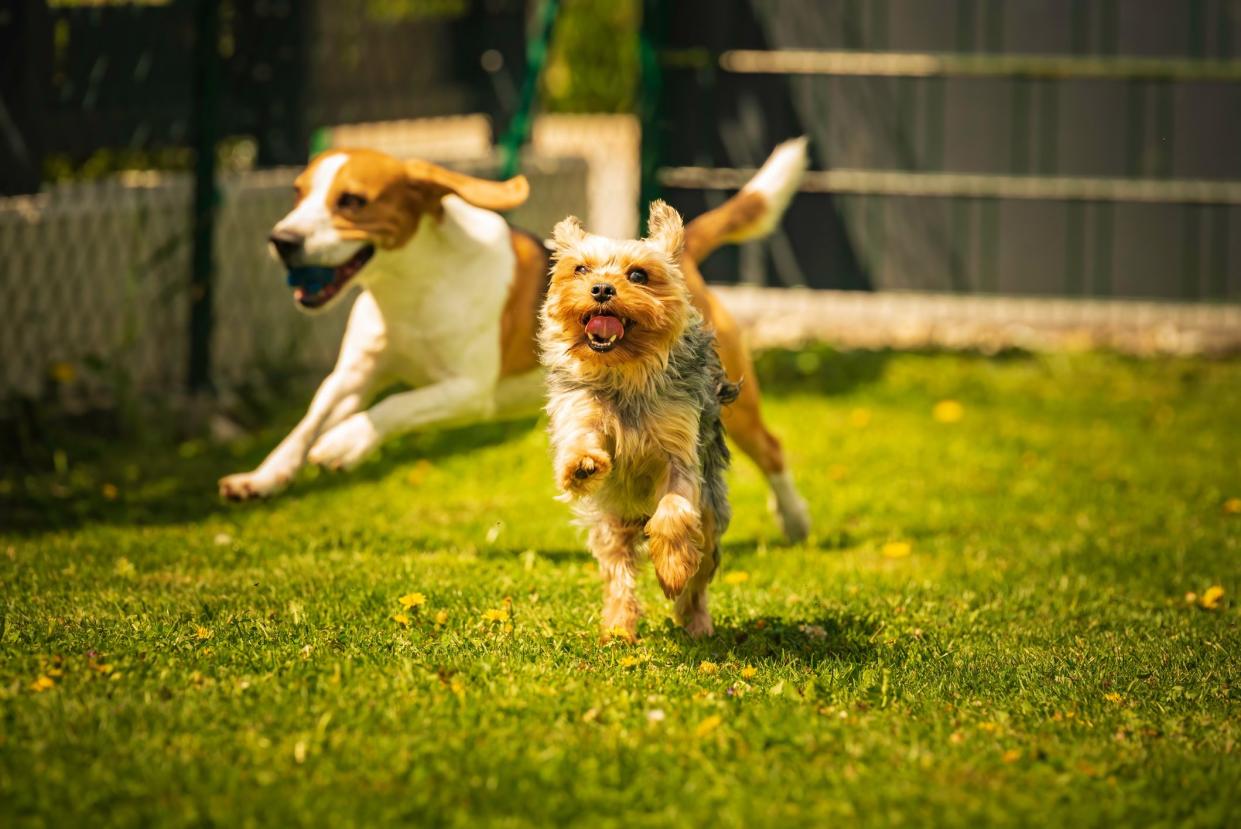
6. Bringing a Dog That Is Not Socialized
Introducing an unsocialized dog to a busy dog park can lead to anxiety and aggression, which can endanger your pooch and others. Dogs that aren't accustomed to being around other dogs or new people can become overwhelmed and escalate play to fighting. This sensory overload can also trigger defensive behaviors as a response to perceived threats, which might include growling, snapping, or even biting.
To minimize the chances of your dog reacting aggressively towards others, consider gradually introducing it to new environments, starting with quieter and less crowded settings. If your dog is especially anxious, a professional trainer could help.
Related: How to Train Your Dog for Less
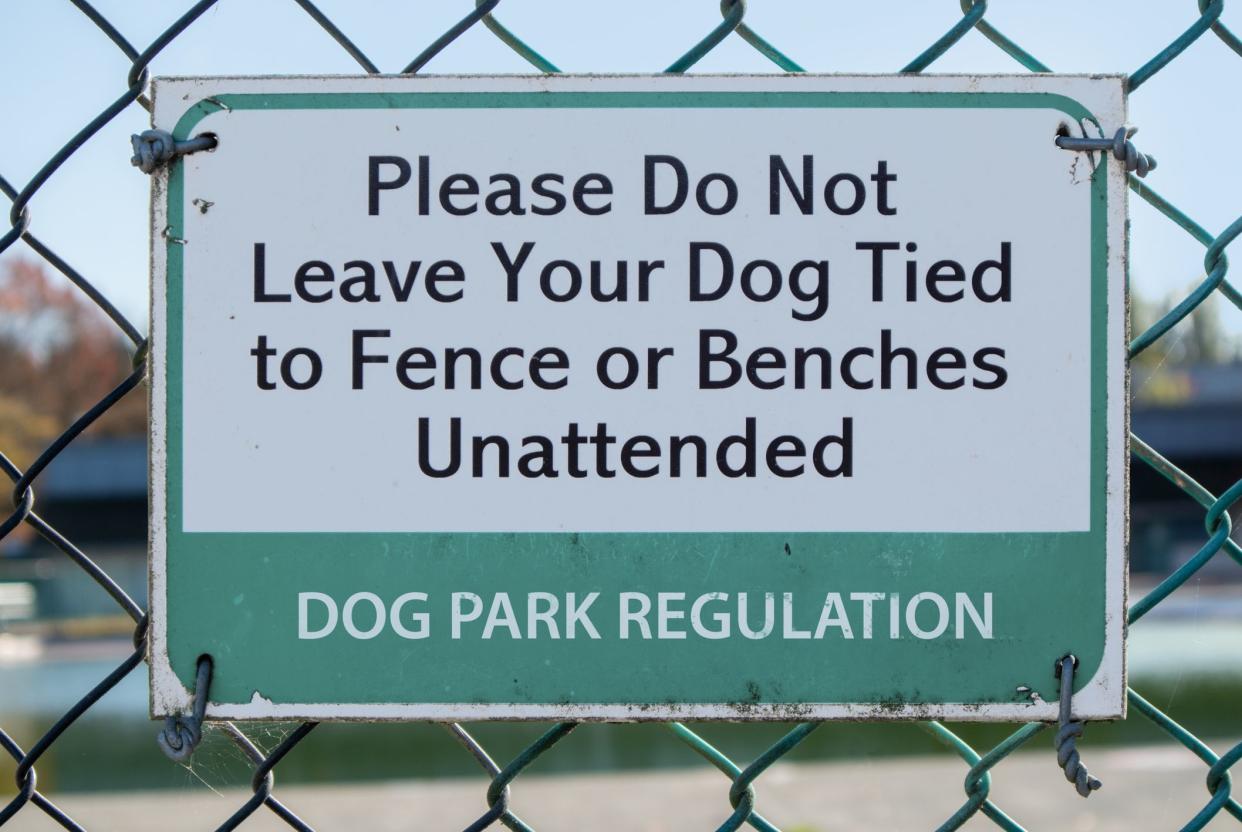
7. Ignoring Park Rules
Each dog park has rules designed to maximize the safety and enjoyment of all visitors. Ignoring these guidelines, such as size restrictions or leash laws in certain areas, can lead to chaos, clashes with other pet owners, or even fines. For example, bringing a large dog into a small dog area can intimidate or accidentally injure smaller breeds.
Related: The Trader Joe's Dog Treats My Picky Dog Liked — and the Ones He Didn't
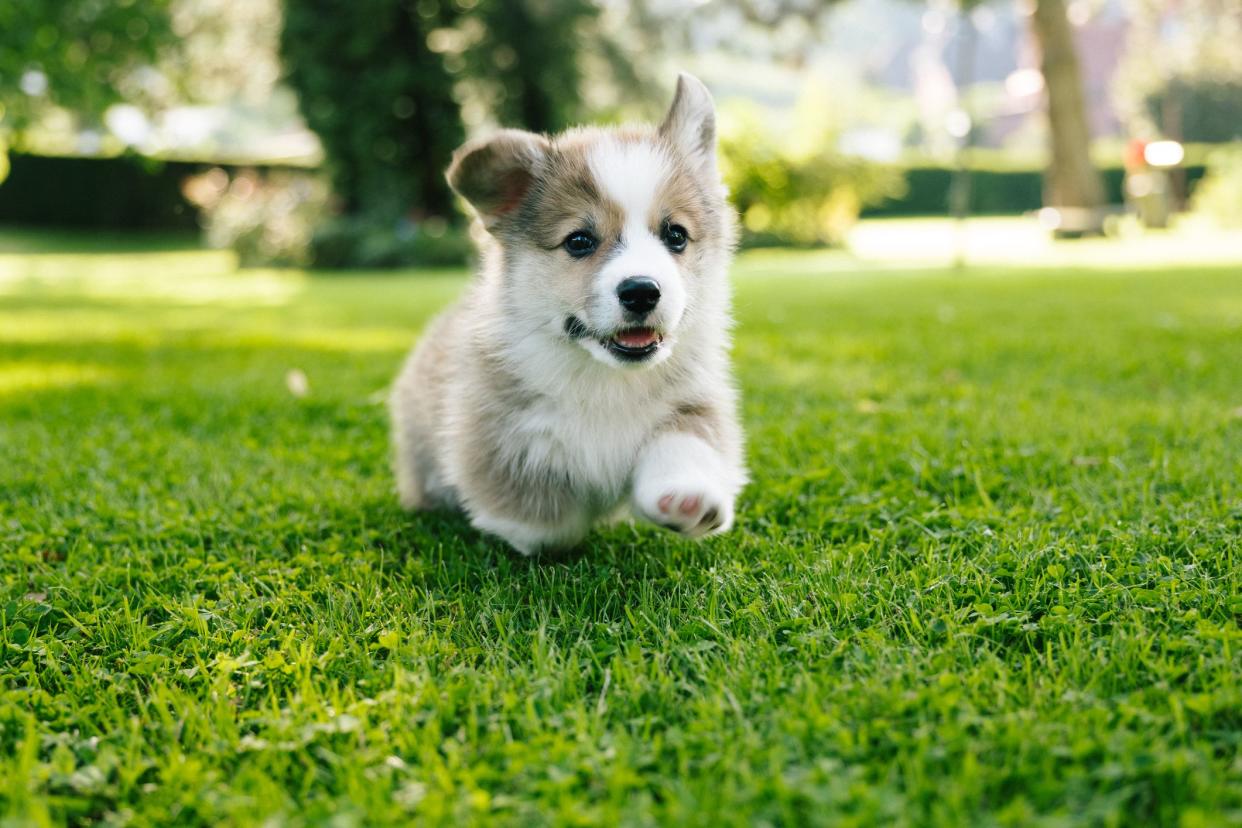
8. Bringing Puppies Too Early
Puppies brought to dog parks too early can be overwhelmed by the bustling environment, which can lead to long-term fear and anxiety issues. Moreover, young puppies are vulnerable to diseases if they haven’t completed their vaccination schedules. The dog park’s hectic nature may also hinder rather than help their social development.
To avoid this, wait until your puppy is fully vaccinated (including boosters) and has begun socialization training before bringing them to a dog park.
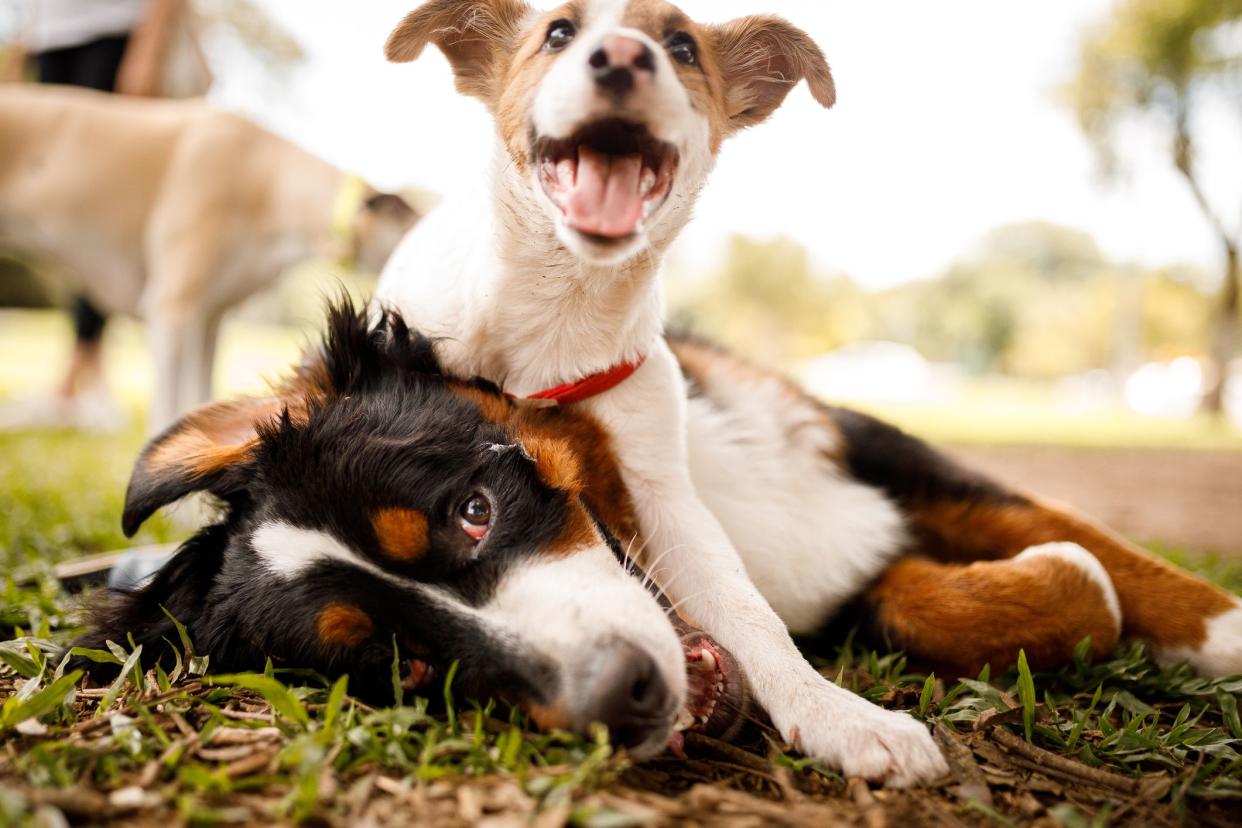
9. Not Providing Enough Water and Shade
Since dogs can quickly dehydrate and overheat — especially during summer months — it's essential for them to always have access to clean water and shade. Failure to provide this can lead to heatstroke, which can be fatal. To be on the safe side, consider bringing extra water and encourage breaks in shaded areas to cool down.
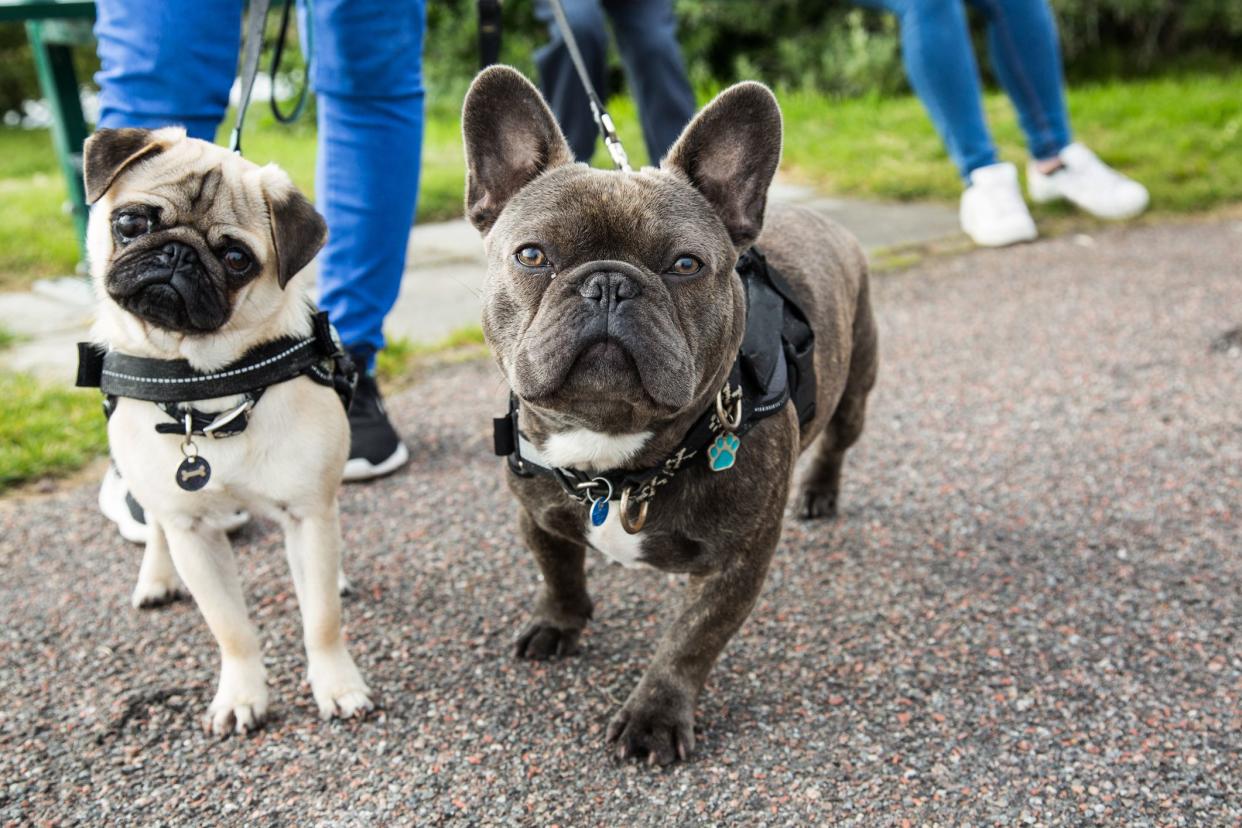
10. Keeping Dogs on Leashes in Off-Leash Areas
Keeping your dog leashed in designated off-leash areas can create tension and confusion among freely roaming dogs. Dogs off their leashes may perceive the leashed dog as vulnerable or restricted, which can lead to aggressive or unpredictable interactions. Leashed dogs might also feel threatened or confined, potentially leading to dangerous situations where they might pull suddenly or get tangled.
If your dog is not yet ready for off-leash experiences due to training or socialization needs, consider gradually introducing them to these environments, or use fenced-off sections until they are comfortable.
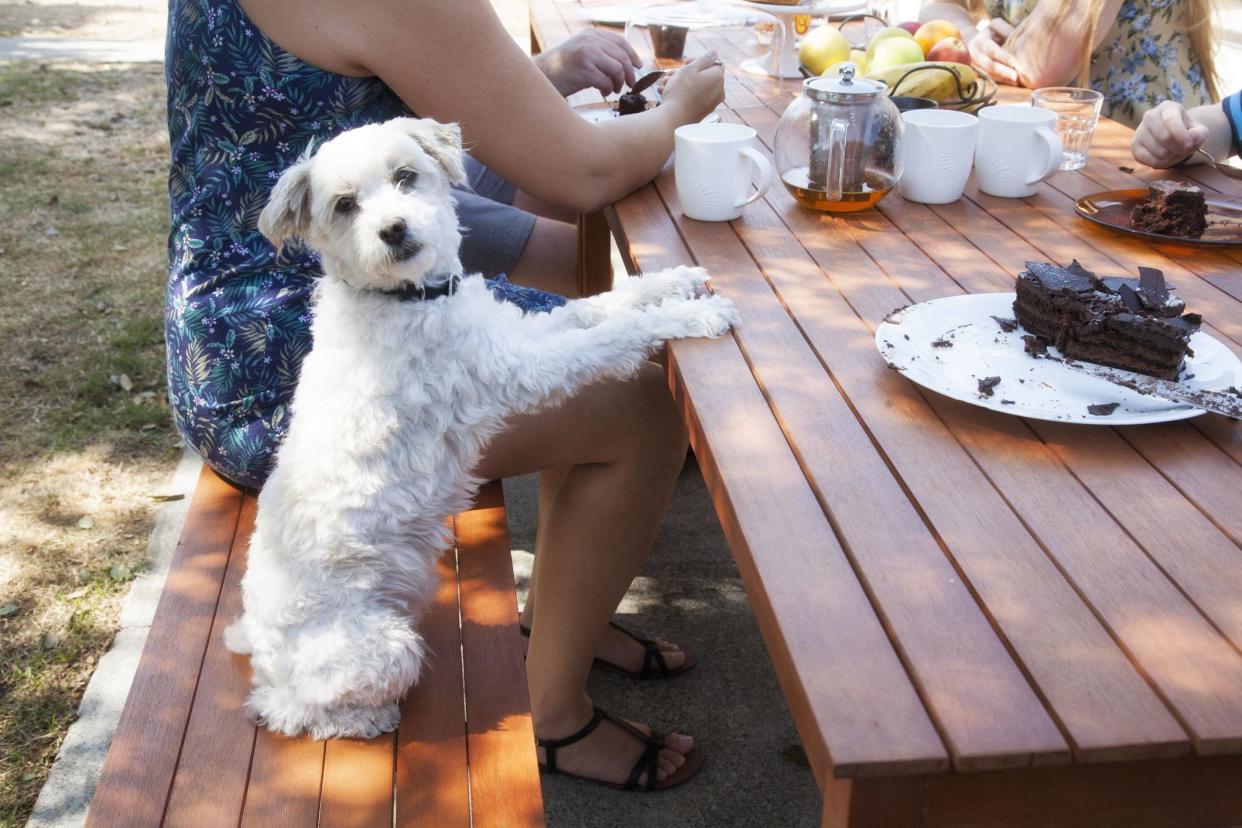
11. Not Cleaning Up After Feeding
Leaving food remnants at the park can attract wildlife or pests, which can lead to sanitation and safety issues. It can also disrupt the natural behavior of local wildlife. Plus, leaving scraps behind can encourage dogs to scavenge, which can disrupt their training and result in upset tummies if the food has gone bad. Some dogs can also become possessive over food, which can encourage aggressive behaviors.
To avoid this, consider feeding your dog before or after the park visit, and avoid using treats that crumble or leave residue. Just remember to allow at least an hour after feeding to prevent issues like bloating or indigestion.
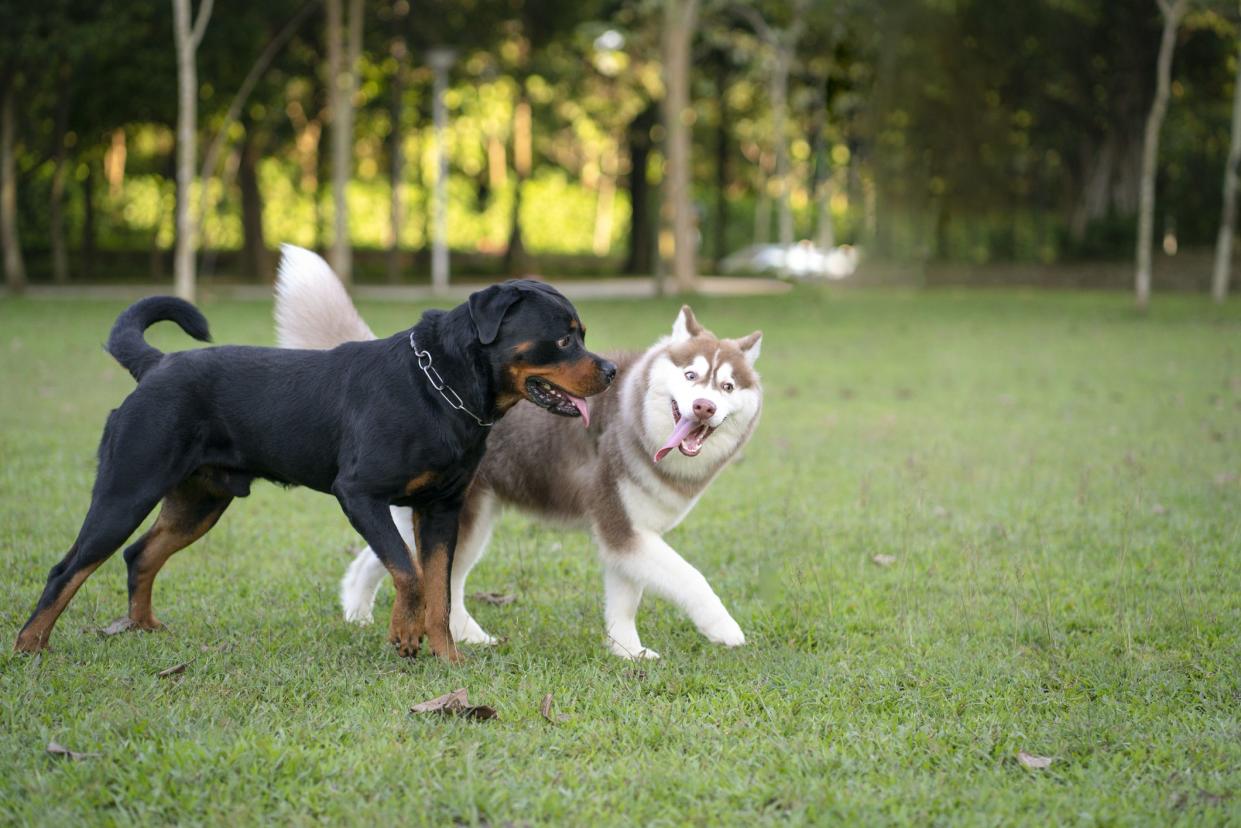
12. Bringing a Dog That's Nursing or in Heat
Bringing a female dog that is nursing or in heat to a dog park can be dangerous or lead to problematic situations. Nursing mothers may be overly protective or aggressive, while dogs in heat can attract unwanted attention from male dogs. This can cause disturbances or even fights among dogs in the park.
It’s best to keep nursing mothers and dogs in heat away from busy dog parks. Wait until nursing is finished and the heat cycle has passed before visiting public dog areas to ensure the safety and comfort of all park goers.
This article was originally published on Cheapism

